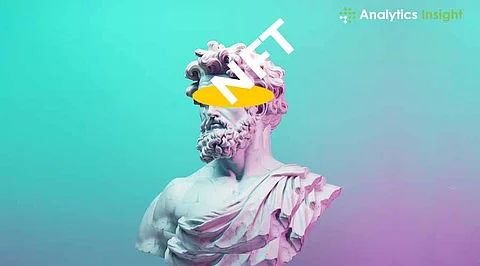NFTs and Intellectual Property: How Blockchain is Reinventing Ownership
In today's digital landscape, digital assets have emerged as a highly sought-after commodity. At the forefront of this shift are Non-Fungible Tokens (NFTs) and Intellectual Property (IP). However, many people still grapple with understanding the connection between NFTs and IP. The answer lies in blockchain technology, which is revolutionizing ownership by making it more secure, transparent, and verifiable.
What Are NFTs?
NFTs represent Non-Fungible Tokens. They are unique digital assets which, unlike cryptocurrency, are unexchangeable. Every NFT has a digital certificate. This certificate validates ownership and genuineness. According to Statista, NFT trading volume exceeded $24.7 billion globally.
How Blockchain Technology Enables Ownership
Blockchain is a type of secure digital ledger. It enables one to log transactions securely. It saves every NFT purchase on the blockchain. This record cannot be changed or deleted by anyone. This ensures transparency and safeguards against fraud.
Blockchain ownership is secure and easy. Creators can confidently sell digital art, music, and videos. Buyers are aware that the asset being purchased is authenticated. This trust of the buyers is making NFTs popular.
Intellectual Property and NFTs
Copyrights, trademarks, and patents are all forms of intellectual property (IP). Besides, what does IP in NFTs mean? An NFT simply puts a certificate of ownership of the token. However, it does not always provide full IP rights. Buyers need to know this dissimilarity.
For example, buying an NFT of digital art doesn’t grant the right to reproduce it. The creator retains those rights unless stated otherwise. According to Deloitte, 56% of NFT buyers are puzzled about IP rules. Thus, the confusion still exists.
NFT Rights Explained
Some NFT creators provide licenses with their tokens. These licenses can allow:
Personal use
Display on social media
Commercial use in some cases
However, each NFT has its own terms. Buyers should always read the license, which protects them from potential legal problems. NFT rights are subject to whatever the creator permits.
Why IP Laws Need to Adapt
NFTs are still catching up with the Intellectual Property laws. These laws were designed for physical products. The digital world is not the same. There are no borders. The creators and buyers can be from different countries.
Governments are now developing clearer rules. The EU began debating digital copyright regulations for NFTs in 2022 along with the United States, which is also considering rules. Though it will take time, change is occurring.
Digital Ownership's Future
Rules are being rewritten by NFTs and intellectual property. Creators have more control. It gives buyers secured and verified ownership. The blockchain is making this possible. According to MarketsandMarkets, by 2030, the NFT market can become a $211 billion market.
The NFT world will become much more powerful with clear IP regulations. Education is key, and people have to know their rights. This will build a much safer and fairer digital economy.
.png)

